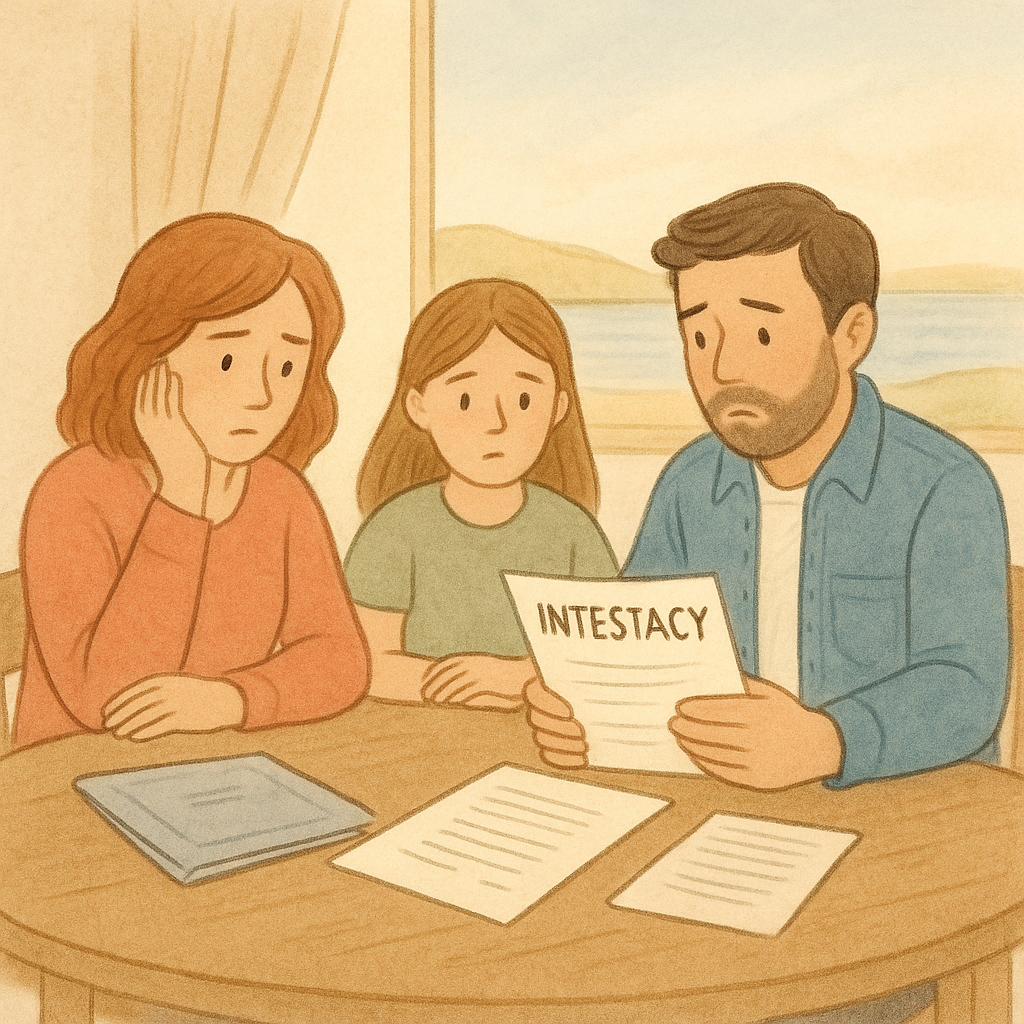Many people assume their family will automatically inherit their estate when they die, but that’s not always the case.
If you die without a valid will, you’re said to die intestate, meaning your estate is distributed according to strict intestacy rules; not necessarily your wishes.
At Coastal Legacy, we help people across Hampshire, Fareham, Gosport, and Portsmouth create wills that protect their families and ensure the right people inherit.
Here’s what happens when no will is in place.
1. The Law Decides Who Inherits
Without a will, your estate is divided according to the Rules of Intestacy. These laws decide who inherits based on your family structure, not your personal preferences.
Here’s a quick overview:
- If you’re married or in a civil partnership:
Your spouse inherits most (or all) of your estate, depending on its value and whether you have children. - If you have children:
They may share what’s left after your spouse’s entitlement, but unmarried partners and stepchildren are excluded. - If you’re unmarried:
Your partner has no automatic right to inherit, no matter how long you’ve been together. - If you have no close relatives:
Your estate could pass to the Crown (the government).
2. Unmarried Partners Are Not Protected
One of the biggest misunderstandings is that “common-law partners” automatically inherit. Unfortunately, they don’t.
Without a will, your partner may not receive your home, savings, or personal belongings; even if you’ve lived together for decades.
Writing a will ensures your partner is protected and your shared life is recognised legally.
3. Children’s Inheritance Can Be Delayed
If you have children under 18, they can’t inherit directly. Their inheritance is usually held in trust until adulthood.
With a will, you can:
- Choose who manages their inheritance
- Appoint guardians to care for them
- Decide when and how they receive assets
Without one, the courts make those decisions for you.
4. Family Disputes Can Arise
When the law, not the individual, decides how an estate is shared, disagreements often follow.
Arguments over property, money, or sentimental items can cause lasting rifts; something no family wants after a loss.
A will removes doubt and makes your wishes crystal clear.
5. It Can Cause Delays and Extra Costs
Dying intestate often leads to longer, more complicated legal processes.
Executors must apply for letters of administration, which can take months or even years to resolve; leaving loved ones unable to access funds in the meantime.
A valid will keeps the process smoother, quicker, and less stressful.
6. Your Estate Might Not Go Where You Expect
Without a will, you have no say in who receives your possessions, property, or savings.
Friends, stepchildren, or chosen charities won’t inherit unless they’re explicitly named in a will.
Writing one ensures your estate reflects your true wishes and values.
7. A Will Brings Peace of Mind
Writing a will is simple, affordable, and gives you control over what happens after you’re gone.
It ensures:
- Your loved ones are looked after
- Your estate goes where you choose
- Your wishes are carried out without confusion or conflict
At Coastal Legacy, we make the process clear, comfortable, and personal; so you can plan with confidence.
Don’t Leave It to Chance
The only way to make sure your estate is distributed according to your wishes is to have a valid, up-to-date will.
👉 Contact Coastal Legacy today for professional, friendly will writing across Hampshire.

